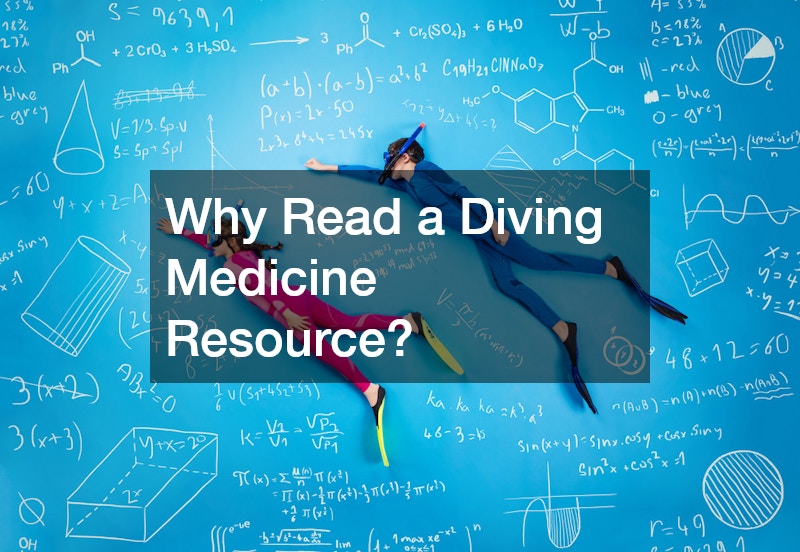Diving is an exhilarating and adventurous activity that takes individuals into a unique and challenging environment. However, like any activity that involves exposure to extreme conditions, diving carries certain risks to health and safety. For divers, having access to reliable diving medicine resources is crucial for understanding the medical aspects of diving and mitigating potential health risks. Here’s why reading a diving medicine resource is important.
Understanding Health Risks Associated With Diving
One of the primary reasons to read a diving medicine resource is to gain a better understanding of the health risks that divers may encounter. Diving exposes the body to increased pressure, varying gas concentrations, and temperature changes, all of which can affect physiological systems. Common issues include decompression sickness (also known as “the bends”), nitrogen narcosis, and barotrauma. These conditions can be serious and even life-threatening if not understood and properly managed. A diving medicine resource provides detailed explanations of these risks, helping divers recognize early symptoms and take preventive measures.
Learning About Safe Diving Practices
Diving medicine resources often offer guidelines on safe diving practices that can significantly reduce the risk of injury. These guidelines cover topics like proper ascent and descent techniques, the importance of gradual decompression, and understanding depth limits. Divers can learn how to calculate and manage their dive profiles to avoid complications like decompression sickness. By following the recommendations outlined in diving medicine resources, divers can enhance their safety and confidence underwater.
Preparing for Pre-Existing Medical Conditions
For individuals with pre-existing medical conditions such as asthma, diabetes, or cardiovascular issues, reading a diving medicine resource can provide valuable insights into whether diving is safe for them. These resources explain how different medical conditions interact with the pressures of diving and offer advice on how to adapt dive plans to account for these conditions. In some cases, divers with certain health issues may need medical clearance from a diving physician, and these resources help guide divers through this process.
Improving Emergency Preparedness
In the event of a diving-related emergency, being well-versed in diving medicine can make a critical difference. Divers who are familiar with common injuries and symptoms are better equipped to administer first aid or assist with evacuations. Diving medicine resources also provide important information about treatments, such as oxygen administration or recompression therapy, which can save lives in critical situations.



